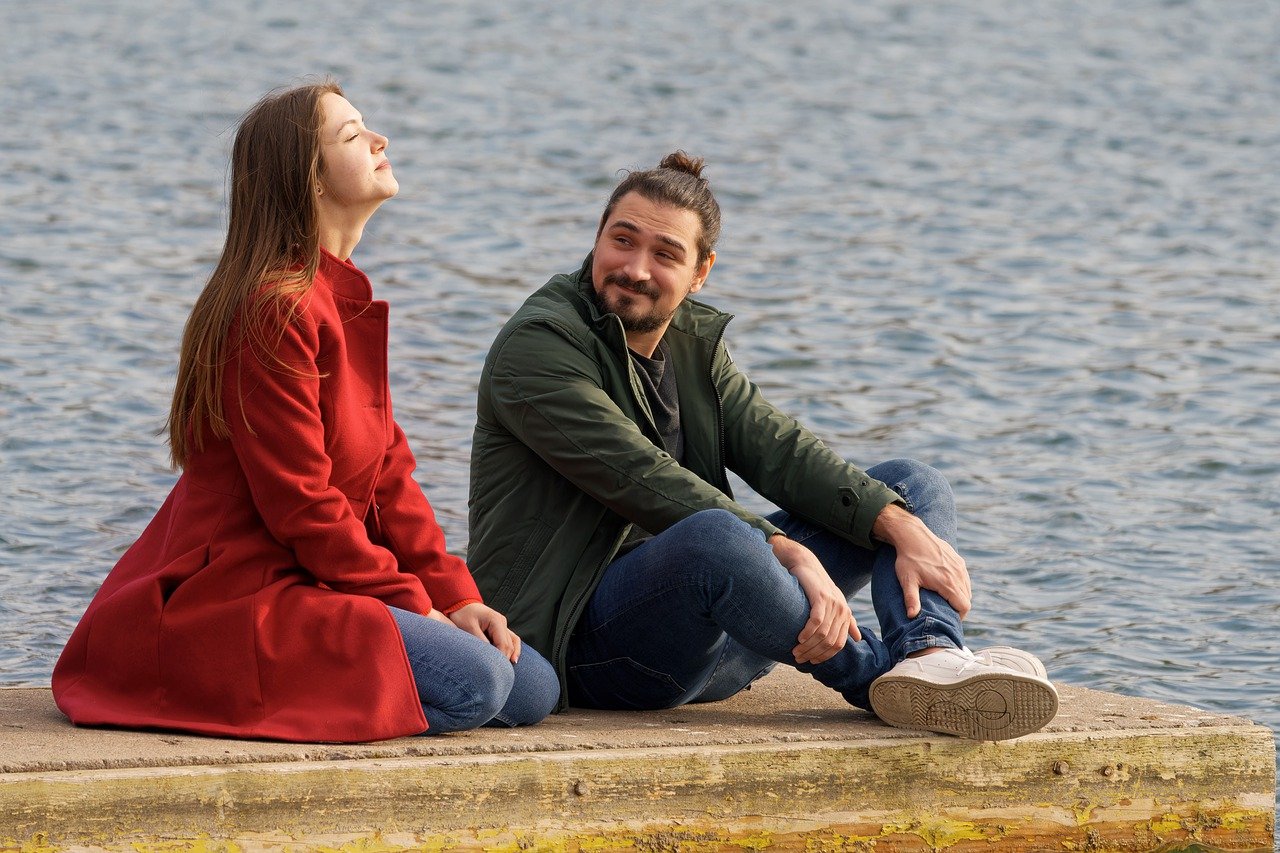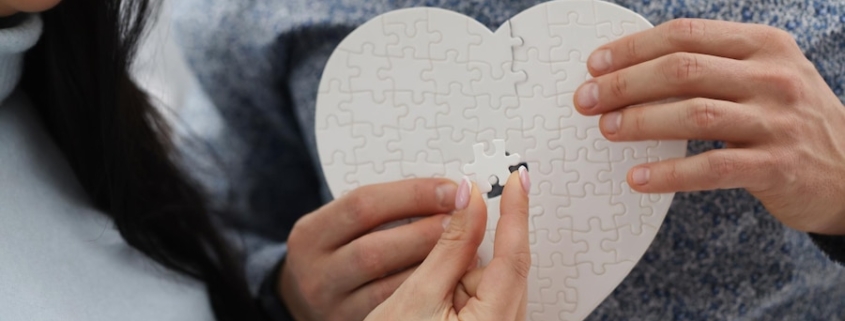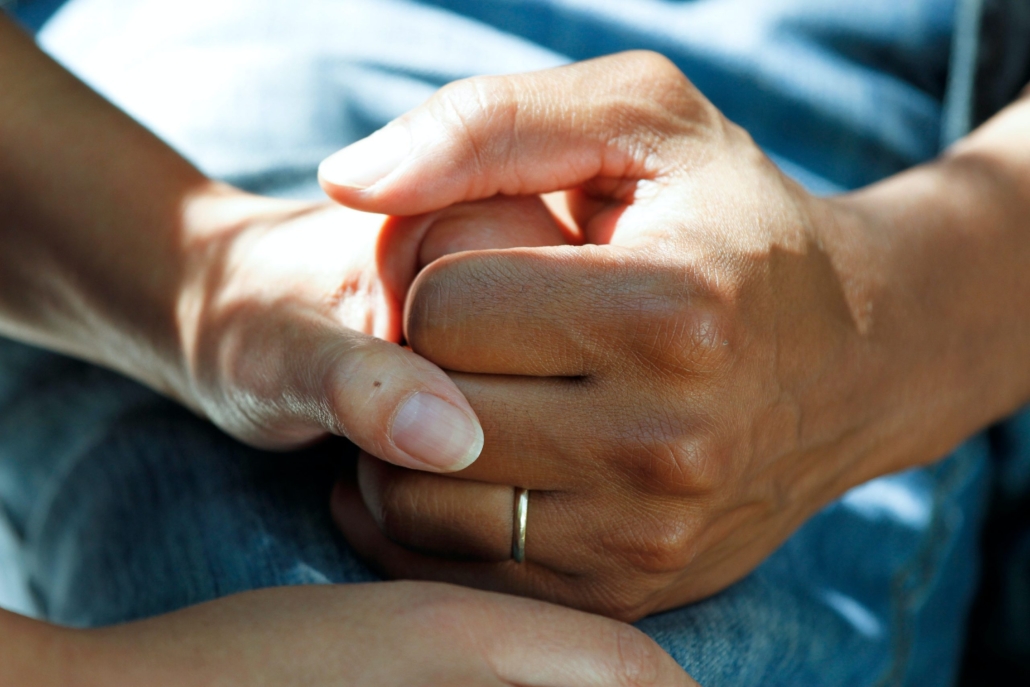Rehabilitation marks a crucial turning point in the journey toward recovery, but the road doesn’t end when individuals leave rehab. For many, transitioning back to daily life after completing a program can be challenging. This is where couples sober living homes step in, providing a supportive environment to ensure a sustained recovery for individuals who are in relationships and committed to sobriety.
At Couples Rehab, we understand the importance of seamless reintegration into everyday life after rehab, especially for couples navigating this journey together. In this article, we’ll explore what couples can expect when they transition into sober living homes and how these environments foster long-term sobriety.
Contact Us
What Are Couples Sober Living Homes?
Couples sober living homes are specialized residential facilities designed to support individuals and couples in recovery from addiction. These homes provide a structured, sober environment that promotes accountability, healthy routines, and community support. Couples rehab programs in these settings are tailored to help partners remain sober while maintaining and strengthening their relationship.
Unlike typical rehab centers, sober living homes are designed for individuals who have already completed an intensive treatment program and need a transitional space before reintegrating fully into society. In a couples sober living home, partners are encouraged to work on both their personal sobriety and their relationship dynamics in a safe, drug-free space.
The Role of Couples Sober Living Homes in Long-Term Recovery
Recovery from addiction is a lifelong journey, and it requires ongoing support. Couples sober living homes play an essential role in ensuring that couples can maintain their sobriety while rebuilding their relationships. These homes are not just places to live; they are environments that offer structure and guidance during the challenging months after leaving rehab.
One of the primary goals of sober living homes is to prevent relapse, which is why these homes have specific rules and routines designed to maintain sobriety. This type of housing is ideal for couples who have gone through addiction rehab programs and now need a place to recover together in a way that reinforces both individual and relational growth.
At Couples Rehab, we recognize the importance of keeping couples engaged in sober living homes as they heal, not just physically but also emotionally. The supportive nature of sober living homes fosters the tools couples need to rebuild their lives without the temptation of old habits or environments.
What to Expect in a Couples Sober Living Home
The experience in a couples sober living home can vary depending on the location, size, and philosophy of the home. However, there are several common elements that most sober living homes share:
Structured Daily Routine
One of the defining features of sober living homes is a structured daily routine. Couples will be expected to follow a schedule that promotes sobriety, productivity, and emotional stability. This schedule might include chores, job searches, group therapy sessions, 12-step meetings, or other activities designed to foster accountability.
Structure is an essential part of life after rehab. It helps prevent feelings of aimlessness and provides individuals with the tools they need to stay focused on their recovery. A daily routine ensures that there is a balance between personal time and sober activities, which is essential for long-term sobriety.
Drug and Alcohol-Free Environment
As the name suggests, sober living homes are drug- and alcohol-free environments. This is one of the most significant benefits for couples in recovery, as they are surrounded by a supportive community that understands the challenges of maintaining sobriety. For couples who have struggled with addiction, living in a sober space reduces the temptation of relapse.
These environments also encourage couples to develop healthier coping mechanisms, such as open communication and shared activities, rather than relying on substances to deal with stress, anxiety, or conflict.
Accountability and Support
Couples living in sober living homes benefit from a high level of accountability. Regular check-ins, group meetings, and participation in sober activities ensure that individuals stay on track with their sobriety goals. Accountability can come in various forms, such as house managers, counselors, or peers who are also in recovery.
Support in a sober living home is not just about preventing relapse; it’s about creating an environment that promotes personal growth and mutual healing within the relationship. Couples rehab services focus on ensuring that both individuals work together to strengthen their relationship while continuing their sobriety journey.
Counseling and Therapy
For couples in recovery, therapy is often an essential part of the healing process. Many sober living homes offer therapy, whether in individual sessions or couples therapy, to help couples address issues that may have contributed to addiction. This could include communication problems, trauma, or unresolved emotional conflicts.
The goal of therapy is to help couples improve their communication skills, learn how to cope with stress, and rebuild trust. At Couples Rehab, therapy is an essential tool in helping couples heal both individually and together. These counseling services can range from behavioral therapy to family therapy, all designed to aid the couple’s long-term success.
Life Skills Training and Job Assistance
Sober living homes often provide resources to help couples get back on their feet. This may include life skills training, such as budgeting, cooking, and time management, to prepare couples for independent living. Job assistance and employment counseling may also be available to help couples find stable employment and achieve financial independence.
Transitioning from rehab to the real world can be daunting, especially when it comes to finding stable employment and securing housing. Couples rehab services often include these practical support elements, ensuring that couples feel ready to take on life’s challenges as they work toward building a sober future together.
Safe, Supportive Community
One of the most valuable aspects of sober living homes is the sense of community. For couples in recovery, being around others who understand their struggles can be immensely comforting. Living in a sober community creates a network of people who are also working toward maintaining sobriety, making it easier to share experiences, advice, and support.
For couples, this shared experience can be particularly valuable. When both partners are dealing with similar challenges, it can help them bond and feel less isolated in their recovery journey. The sober living home environment fosters emotional support and reduces the risks of relapse by promoting positive relationships.
Benefits of Couples Sober Living Homes
Living in a couples sober living home offers several benefits that can significantly enhance the recovery process. These benefits include:
Strengthened Relationships
Recovering from addiction is not only about individual growth but also about improving relationships. Couples rehab programs provide the support necessary for partners to communicate more effectively, rebuild trust, and strengthen their connection. Many couples in sober living homes experience an improvement in their relationships as they focus on healing together.
Ongoing Support and Guidance
The transition from rehab to independent living can feel overwhelming. Couples sober living homes provide a bridge between the structured environment of rehab and the autonomy of independent living. The ongoing support and guidance from sober living staff help ensure that couples don’t face this transition alone.
Improved Mental Health
In addition to physical recovery, mental health plays a crucial role in the overall well-being of individuals in recovery. Couples sober living homes offer an environment that supports mental health by encouraging open communication, providing counseling, and offering activities designed to reduce stress and promote positive mental health.
Higher Success Rate of Maintaining Sobriety
Research suggests that individuals who live in sober environments, such as sober living homes, have a higher success rate of maintaining long-term sobriety. The structured, supportive environment helps prevent relapse by removing triggers and offering continual accountability.
How Couples Rehab Supports Couples in Sober Living
At Couples Rehab, we are committed to providing couples with a comprehensive, compassionate, and effective recovery program. Our couples sober living homes are designed to give partners the tools they need to recover together in a safe, supportive, and drug-free environment. With structured routines, counseling services, and community support, couples can build a lasting foundation for sobriety and a healthy relationship.
We understand that the journey to recovery is not a one-size-fits-all experience, which is why we offer customized care tailored to the unique needs of each couple. Our goal is to help couples not only stay sober but also thrive together as they rebuild their lives.

Frequently Asked Questions (FAQ) About Couples Sober Living Homes
At Couples Rehab, we understand the journey toward recovery can be complex, especially for couples navigating sobriety together. To assist you in making informed decisions, we’ve compiled a list of frequently asked questions (FAQ) about couples sober living homes. These answers will help clarify what you can expect and how sober living homes can support long-term recovery for couples.
1. What are couples sober living homes?
Couples sober living homes are specialized, drug- and alcohol-free living environments that cater to couples in recovery from addiction. These homes offer a safe, structured space for partners to maintain their sobriety while rebuilding their relationships. At Couples Rehab, we ensure that each couple receives personalized care to help them stay on track with their sobriety goals and strengthen their emotional connection.
2. How do couples sober living homes support long-term sobriety?
Couples sober living homes offer a variety of benefits to support long-term sobriety, including a drug-free environment, accountability, and structured daily routines. These homes typically require residents to participate in regular house meetings, attend 12-step programs, and undergo counseling. The support system within the home helps reduce the risk of relapse and provides couples with a community of like-minded individuals to lean on.
3. What is the difference between rehab and sober living homes?
Rehabilitation centers focus on intensive treatment to help individuals detoxify and heal from addiction. Sober living homes, on the other hand, provide a supportive environment for individuals who have completed rehab and are transitioning back into daily life. While rehab focuses on treatment and detox, sober living homes emphasize maintaining sobriety, rebuilding relationships, and adjusting to life outside of a rehab center.
4. Can couples live together in sober living homes?
Yes, couples can live together in sober living homes. These homes are specifically designed to support couples recovering from addiction. At Couples Rehab, we create a supportive environment that encourages couples to work on their individual sobriety while strengthening their relationship. Couples are provided with counseling, structure, and tools to help them maintain long-term sobriety together.
5. What types of support are available for couples in sober living homes?
Couples in sober living homes benefit from a variety of support services, including:
- Individual and couples counseling: Helps address relationship issues, communication problems, and personal challenges related to addiction.
- Group therapy sessions: Promotes community support and shared experiences.
- 12-step meetings: Encourages continued participation in recovery programs.
- Life skills training: Teaches practical skills such as budgeting, time management, and job readiness.
- House meetings: Ensures accountability and provides an opportunity for open communication among residents.
6. How do couples sober living homes help rebuild relationships?
Couples sober living homes provide a safe, sober space where partners can focus on healing together. With access to counseling and therapy, couples can work through issues such as trust, communication, and emotional support. The structured environment promotes healthy routines and behaviors, allowing couples to strengthen their emotional bond while staying focused on their sobriety.
7. What are the rules and expectations in sober living homes for couples?
In sober living homes, there are strict rules designed to ensure a safe and supportive environment for all residents. Common rules include:
- No drugs or alcohol: Residents are expected to remain sober at all times.
- Regular check-ins: Couples may be required to participate in house meetings and counseling sessions.
- Chores and responsibilities: Residents are assigned daily tasks to promote a sense of responsibility and structure.
- Respectful behavior: Couples are expected to treat one another and fellow residents with respect and consideration.
At Couples Rehab, we help couples navigate these expectations to promote both individual growth and relationship healing.
8. Are sober living homes for couples a good option for preventing relapse?
Yes, sober living homes are a highly effective option for preventing relapse. The structured environment, coupled with continuous support from peers and professionals, provides couples with the tools they need to maintain sobriety. By removing themselves from environments where they might encounter triggers or temptations, couples have a greater chance of sustaining long-term sobriety.
9. How long should a couple stay in sober living homes?
The length of stay in a sober living home depends on each couple’s unique needs and progress in recovery. Generally, couples may stay anywhere from a few months to over a year. At Couples Rehab, we tailor the duration of stay to ensure that couples are fully prepared to transition back to independent living when they are ready. The goal is to provide couples with enough time to develop the necessary skills for a successful, sober life.
10. What are the benefits of choosing Couples Rehab’s sober living homes?
Couples Rehab’s sober living homes offer numerous benefits for couples in recovery:
- Personalized care: We understand that every couple’s recovery journey is different, which is why we offer customized support.
- Safe and sober environment: Our homes are designed to foster sobriety and emotional healing.
- Comprehensive services: In addition to therapy and counseling, we offer life skills training and job placement assistance to ensure couples can thrive after rehab.
- Strong sense of community: Couples Rehab creates a community of individuals who support one another in their recovery journey, reducing feelings of isolation and providing valuable peer support.
Conclusion
Couples sober living homes offer essential support for partners in recovery, providing a structured, safe, and sober environment that fosters individual and relational growth. By transitioning into a sober living home, couples can strengthen their relationship, maintain sobriety, and work toward building a fulfilling life together.
At Couples Rehab, we’re here to guide you and your partner every step of the way on your recovery journey. With our supportive community and specialized couples rehab services, you can rest assured that you’ll have the tools and resources you need to thrive in your sobriety and relationship. Reach out today to learn more about how we can help you on your path to lasting recovery.

















